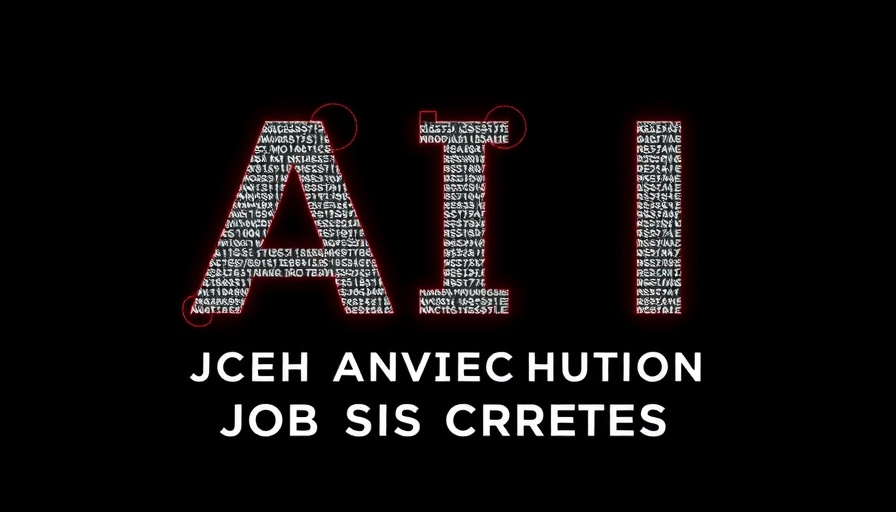
Forecasting the Impact of AI on Future Jobs
The future landscape of employment is under intense scrutiny as AI technologies advance at breakneck speed. With fears that automation will render many positions obsolete, the conversation surrounding job security is more crucial than ever. Enter JobsGPT, an innovative tool created by Paul Roetzer, founder of the Marketing AI Institute, designed not just to analyze existing positions but to predict new roles that AI could create.
Understanding AI's Job Market Disruption
In the wake of widespread AI adoption, businesses face pressures to reduce costs and improve efficiency through automation. While industry leaders advocate for "reskilling" employees, clear data on job displacement and creation remains scarce. Roetzer, deeply concerned by this lack of clarity, developed JobsGPT to provide actionable insights into the current and future impact of AI on various job roles. This tool allows professionals to enter their job titles or descriptions and receive an analysis of how each task within their role may change due to AI advancements.
JobsGPT 2.0: Evolving Job Assessments
The latest iteration of JobsGPT expands on its initial capabilities by not only assessing risks to current job roles but also innovating future positions that AI might generate. For example, if a user inputs the title "marketer," JobsGPT forecasts potential future roles tailored to the evolving demands of the industry. This predictive aspect is crucial for workers seeking to adapt to an increasingly automated workplace.
How JobsGPT Works: An Insightful Approach
JobsGPT utilizes a unique Exposure Key to evaluate how specific job tasks are affected by AI advancements. The exposure ranges from E0, indicating no exposure where human interaction remains critical, to E10, which suggests roles that incorporate the capability of humanoid robots performing tasks traditionally reserved for humans. This detailed approach enables professionals to understand their job's vulnerability to AI automation.
The Importance of Proactive Career Planning
Transitioning into an AI-dominant work environment is inevitable; hence, proactive career planning is key. By utilizing tools like JobsGPT, professionals and organizations can better prepare for the future. Roetzer emphasizes that leaders must be forward-thinking, enhancing their understanding of potential job market changes and developing strategies to leverage AI technology effectively.
Real-World Applications: Preparing for New Job Roles
For marketing executives and C-level leaders, understanding how AI will reshape their teams can unlock new efficiencies and innovations. For instance, by utilizing JobsGPT to explore hypothetical scenarios and adapting accordingly, businesses can maintain a competitive edge as AI continues to evolve. Roetzer’s tool serves as a pivotal resource for those looking to navigate this transformation responsibly.
Conclusion: Embracing AI's Transition
The integration of AI into everyday business processes presents both challenges and opportunities. As we approach a world where AI's capabilities are continually expanding, having the tools at our disposal to forecast job changes is essential. By embracing tools like JobsGPT, businesses can not only adapt to the changing landscape but also thrive within it. Leaders are encouraged to explore this innovative tool and begin planning for their organizations' futures now.
 Add Row
Add Row  Add
Add 


Write A Comment